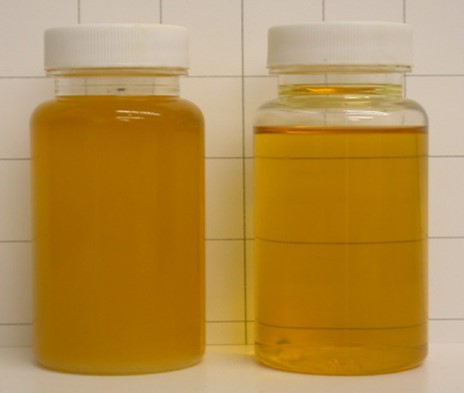There are many causes for contamination in lube and hydraulic oils. some of which being:
Moisture / Water (free, emulsified, dissolved)
Nondeformable particles (grit, debris, wear metals)
Polar compounds of oxidation / Varnish
Entrained gasses
We are going to dive deeper into the effects of water contamination.
Harmful Effects of Water Contamination in Lube & Hydraulic Oils:
Depletes some additives and reacts with others to form corrosive by-products
Reduces lubricating film-strength, which leaves critical surfaces vulnerable to wear
Reduces filterability and clogs filters
Increased air entrainment
Corrosion of component surfaces
Oxidation of lube oils
Water Removal Options:

The Oil Filtration Systems Solution: Vacuum Dehydration Oil Purification System (VDOPS)
Remove water contamination from oil (free, emulsified, and dissolved), achieving very low overall water content (as low as 20 PPM)
Remove Gases: the same process of vacuum distillation effectively removes entrained air and gases
Remove Particulate: using high efficiency pleated micro-glass filter elements. Achieve particle counts in oil to meet or exceed an ISO 14/13/11
VDOPS Results Proven:
50 GPM OFS vacuum dehydrator keeping wet-end paper machine lube oil clean & dry. OFS is recirculating the 5,500-gallon reservoir of ISO220 lube oil and achieving 17/15/11 with <150 ppm water.
Due to leaking steam seals, they cannot run without the OFS dehydrator. The OFS is always pulling water from this high viscosity oil. They also run a dehydrator on the their pulper lube oil.
Before After
Water Concentration Water Concentration
1120 PPM 45 PPM






Kommentarer